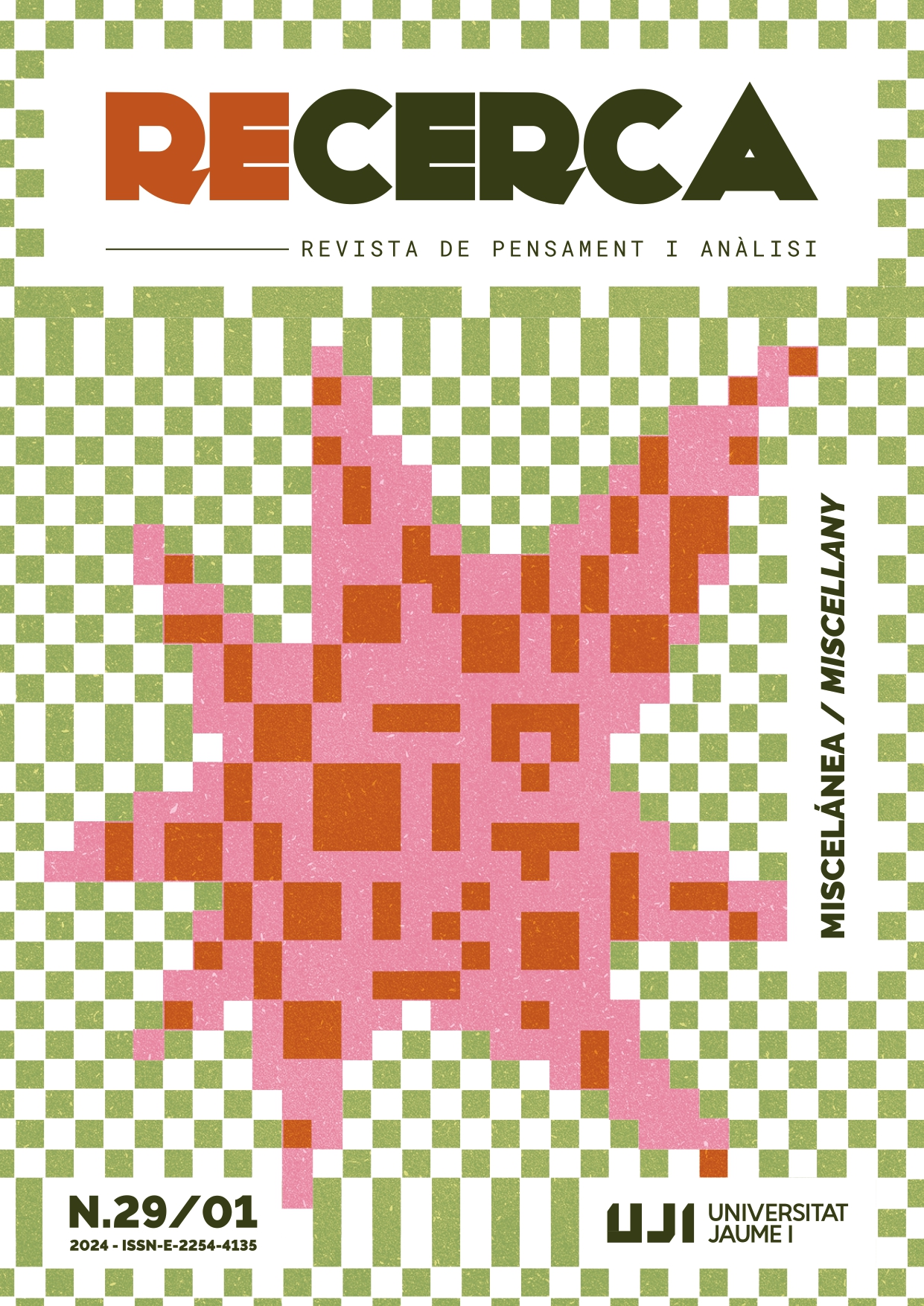The idea of the infinite: a defunding of the total and a foundation of the ethical
Main Article Content
Abstract
This essay practices a hermeneutics analysis of Totality and Infinity from five epigraphs, all dedicated to exploring the multiple meanings of the Levinasian proposal about the transcendental foundation of the ethical. The first section seeks to analyze the relationship between what Lévinas designates as the visage of being and the concept of totality; in the following epigraph, the difference existing, within the temporal understanding of the total, between the historical and the eschatological is made explicit; the third section analyzes the motives that lead Lévinas to substitute the metaphysical for the ethical, revealing this second knowledge as the first philosophy; and finally, the fourth and fifth sections are dedicated to understanding two concepts that, intertwined, condense the conceptual matrix from which Lévinas emphasizes the originality of his proposal: the face of the other and the idea of infinity.
Downloads
Article Details
References
Bernstein, Richard J. (2004) Evil and the temptation of theodicy. En Critchley, Simon y Bernasconi, Robert (ed.). The Cambridge Companion to Lévinas. Cambridge: Cambridge University Press.
De Zan, Julio (2009). La filosofía social y política de Hegel. Trabajo y propiedad en la filosofía práctica. Buenos Aires: Ediciones del Signo.
Dostoievski, Fiodor (2000). Los hermanos Karamazov. Barcelona: Cátedra.
Esquirol, Josep M. (2012). La primera palabra, o la esencia del lenguaje como amparo. Ágora, 31(1), 103 120. doi: https://doi.org/10.15304/ag.31.1.227
Hand, Seán (2009). Emmanuel Lévinas. London: Routledge, Taylor & Francis Group.
Kant, Immanuel (1994). Crítica de la razón práctica. Salamanca: Sígueme.
Lévinas, Emmanuel (1979). Totality and Infinity, An essay of exteriority. Boston: Martins Nijhoff Publishers.
Lévinas, Emmanuel (1987). Totalité et Infini. Essai sur l'extériorité. Kluwer Academie.
Lévinas, Emmanuel (1993). El Tiempo y el Otro. Introducción de Félix Duque. Barcelona: Paidós, UAB.
Lévinas, Emmanuel (2002). Totalidad e infinito. Salamanca: Sígueme.
Mélich, Joan-Carles (1998). Totalitarismo y fecundidad. La filosofía frente a Auschwitz. Barcelona: Anthropos.
Sartre, Jean Paul (1937). L’Etre et le Neant. Paris: Gallimard.
Vidal Labajos, Sebastian (2023). Tiempo, subjetividad y dominación social en las sociedades contemporáneas: de la dominación abstracta a la ética neoliberal del tiempo. Recerca. Revista de Pensament i Anàlisi, 28(2), 1 25. doi: http://dx.doi.org/10.6035/recerca.6749
Waldenfels, Bernhard (2004). Lévinas and the face of the other. En Critchley, Simon y Bernasconi, Robert (ed.). Cambridge Companion to Lévinas (63-82). Cambridge: Cambridge University Press.
Wesphal, Merold (2008). Lévinas and Kierkegaard in dialogue. Bloomington: Indiana University Press.
Žižek, Slavoj (2020). La realidad de lo virtual (The Reality of the Virtual). Documental dirigido por Ben Wright (2007). Transcripción y traducción de la intervención de Žižek: Sergio Aguilar Alcalá. Revista Iberoamericana de Comunicación, 38, 182-208.


